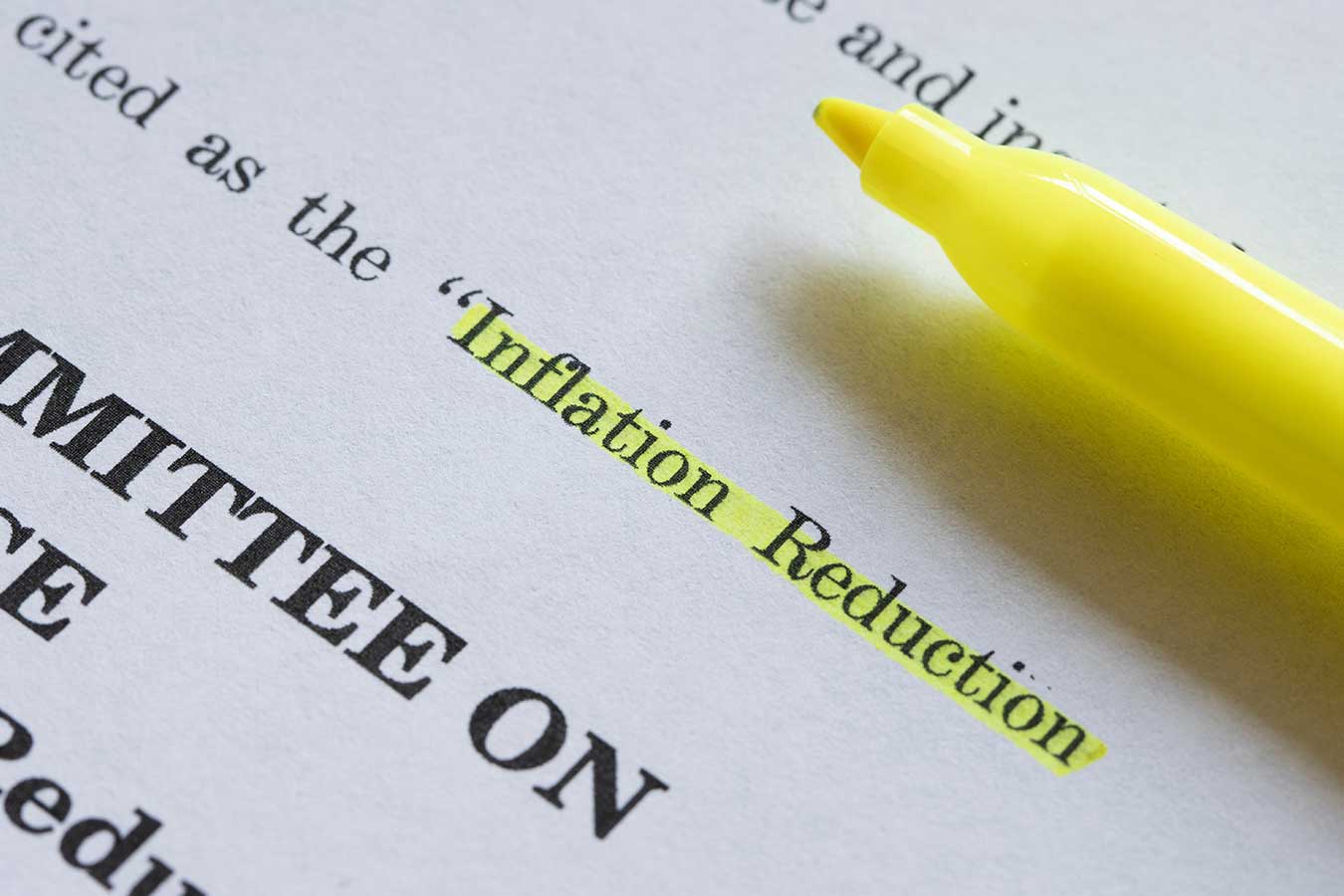By Gulzar Ahmed, Client Advisor & Chicago Office Director
The Inflation Reduction Act (IRA) passed by Congress in 2022 was an historic piece of legislation with an impact that’s currently rippling through our economy. The IRA has an ambitious goal of lowering inflation by reducing energy, healthcare, and prescription drug costs, while also addressing the climate crisis, increasing well-paid manufacturing jobs, and lowering the deficit. This is far-reaching legislation with a lot of moving parts. Depending on your circumstances, below is a brief overview of what dental practice owners should know and how the legislation might impact your business.
Promoting Clean Energy
The IRA represents the federal government’s biggest investment ever in clean energy through a host of incentives to consumers and businesses. This portion of the legislation provides almost $400 billion to promote renewable energy, such as solar and wind, as well as electric vehicles (EV). Goals include significantly reducing greenhouse gas emissions, lowering the cost of energy for consumers, and ramping up U.S. manufacturing in the green energy sector.
Impact on Dentists
Dentists who take advantage of the clean energy tax incentives offered in the IRA, could see some big tax benefits. If you purchase an EV that meets all the requirements, you could qualify for tax credits up to $7,500. As of 2023, the IRS also offers building owners and lessees who bring their property up to a specific energy efficient standard a tax deduction of $5 per square foot. If you own either a commercial or residential property and install a solar electric system by the end of 2032, you are eligible for a federal tax credit for 30% of the cost, in addition to significantly reducing your energy costs – and possibly generating a credit – for 20-30 years.
Reducing Prescription Drug and Health Care Costs
The IRA extends health insurance premium subsidies for the Affordable Care Act (ACA) through 2025 while also expanding eligibility for the program. The aim is to increase the number of people with access to health care while lowering the cost. For the first time ever, Medicare is authorized to negotiate the costs of prescription drugs, with patients benefitting from the lower prices starting in 2026. Up until now, people receiving Medicare had to spend $7,050 out of pocket on medications before qualifying for coverage with a smaller copayment, but the IRA intends to cap pharmacy costs at $2,000 per person, per year for anyone enrolled in Medicare Part D, which benefits 50 million people.
Impact on Dentists
If your practice uses the federal Health Insurance Marketplace to provide insurance to your employees, extending and expanding ACA benefits is welcome news and could represent significant savings. Otherwise, the impact is less clear. However, an estimated 76.5 million adults do not have dental insurance, with adults aged 60 and over most likely to lack insurance. To the extent that the IRA is able to reduce costs to access health care services, including prescription drugs, that could make it easier for a large segment of the population to be able to afford dental services.
IRA Increases Funding to the IRS
To cover the significant costs of the legislation, the IRA proposes to increase tax collections through a few different channels. It’s instituting a minimum 15% tax rate for corporations that earn at least $1billion in income. The IRA also provides the Internal Revenue Service (IRS) with an additional $80 billion in funding over a ten year period. The funds will be used for four main categories: taxpayer services, business system modernization, operations support, and enforcement. Among other things, the IRS will update its notoriously antiquated computer system and provide faster service when individuals or financial professionals contact them with questions about the tax code.
Impact on Dentists
If the idea of the IRS increasing enforcement makes the hair on your neck rise, it may help to know that during the newly appointed IRS commissioner’s Senate confirmation hearing, Danny Werfel promised to focus on increasing audits only for filers earning over $400,000. If you fall into that group – congratulations! Work with your dental CPA to make sure your tax return doesn’t have any red flags that might trigger unwanted attention.
The IRA is a complex piece of legislation and qualifying for some of the benefits may involve jumping through quite a few hoops, so be sure to consult with a tax professional first. If you have questions about how recent legislation impacts your tax planning, schedule a call with our team at Engage Advisors. We help dentists like you address the many challenges of running a business, so you can move forward confidently towards a financially secure future.

